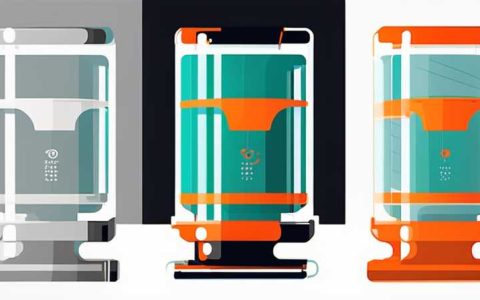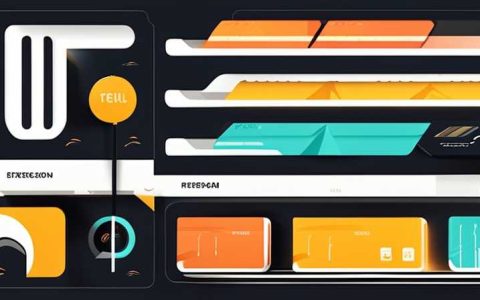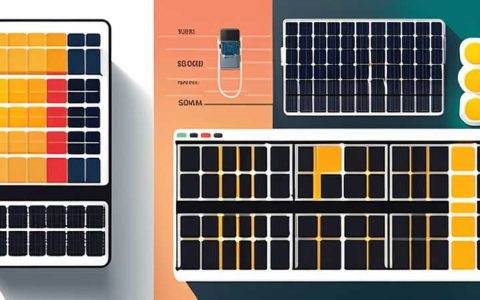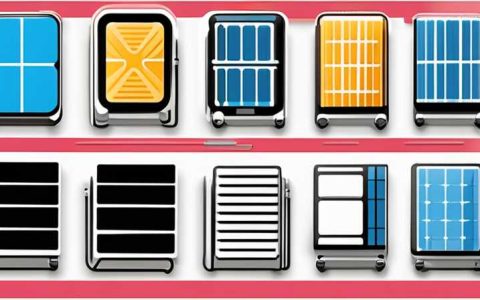
1. CAR SOLAR PANEL COST VARIATION DEFINED: The price of car solar panels varies significantly based on several factors, including the size and type of the panel, installation requirements, and manufacturer reputation. 2. The cost typically ranges from $200 to $2,000, depending on the brand and specifications. 3. Additional expenses may include installation and compatible accessories, which can further increase the overall investment. 4. A detailed evaluation of the various types of solar panels can lead to more informed decisions regarding potential cost benefits and energy savings.
1. UNDERSTANDING CAR SOLAR PANELS
Car solar panels are becoming increasingly popular as alternative energy solutions for powering vehicles. With a growing interest in sustainability and reduced dependency on fossil fuels, understanding the nuances of solar panels designed for cars is crucial. Car solar panels harness sunlight to generate electricity, which can be used for charging batteries, powering auxiliary devices, or even contributing to the propulsion of the vehicle itself. The innovative aspect of these panels lies in their ability to keep batteries charged without relying solely on traditional electric sources.
The technology behind solar panels has evolved immensely in recent years. Photovoltaic cells, which convert sunlight into electricity, are available in various forms, including monocrystalline, polycrystalline, and thin-film panels. Each type has its benefits and drawbacks, influencing the overall cost, efficiency, and installation considerations. Researching the different types of solar panels will undoubtedly shed light on which option best meets your needs.
2. FACTORS AFFECTING THE COST OF CAR SOLAR PANELS
When evaluating the cost of car solar panels, several critical factors come into play. Material quality, panel size, and performance specifications typically determine the initial investment required. Materials used in the manufacture of panels can influence durability and efficiency. Panels constructed with high-quality materials may incur higher upfront costs but can lead to long-term savings due to their reliability and performance.
Subsequently, size considerations also play a crucial role. Solar panels designed for smaller vehicles may cost less than those intended for larger models, such as SUVs or trucks. Furthermore, performance specifications, including wattage output, significantly impact pricing. A higher wattage output typically results in a higher price, as these panels can provide more energy, promoting increased independence from traditional energy sources.
3. A COMPARISON OF SOLAR PANEL TYPES
In the realm of solar panel selection, understanding the different types available is essential for making a cost-effective decision. Monocrystalline solar panels are made from a single crystalline structure, offering greater efficiency rates, generally around 15-22%. However, they tend to be more expensive than other options due to their manufacturing process and performance capabilities.
In contrast, polycrystalline solar panels are produced using multiple crystalline structures, resulting in lower efficiency rates (typically around 13-16%). Although they are generally less expensive than monocrystalline panels, their performance may not meet the needs of all vehicle owners. Thin-film solar panels offer a lightweight, flexible alternative, making installation easier; however, they may not have the same longevity or energy output as crystalline panels.
4. INSTALLATION COSTS AND CONSIDERATIONS
Installation plays a pivotal role in the overall cost of car solar panels. While some vehicle owners may opt for a DIY approach, hiring a professional can ensure a seamless and safe installation process. Professional installation might range from $100 to $1,000, depending on variables such as local labor rates and the complexity of the installation.
Moreover, vehicle compatibility is another consideration. Not all vehicles are designed to accommodate car solar panels, and those that are may require additional modifications for ideal performance. This adds another layer of cost, as additional materials or modifications may be necessary to incorporate the solar technology effectively.
5. LONG-TERM SAVINGS AND RETURN ON INVESTMENT
Investing in car solar panels can yield considerable long-term savings, particularly concerning fuel or electricity costs. With rising energy prices, utilizing a solar-powered system can provide a consistent and renewable energy source for electric vehicles. While initial costs may seem steep, calculating the potential savings on fuel or electricity should be a key component of any evaluation.
Additionally, the environmental benefits associated with solar energy add value to this investment. By reducing reliance on non-renewable resources, individuals contribute to a sustainable future while enjoying the autonomy of solar-powered vehicles. As such, it is vital to weigh the initial investment against the cumulative savings, which may lead to a favorable return on investment over time.
6. INCENTIVES AND FINANCING OPTIONS
Various financial incentives and financing options can help mitigate the costs associated with car solar panels. Additionally, local or federal government programs may provide tax credits, rebates, or low-interest loans for those investing in renewable energy sources. Exploring these opportunities could significantly reduce the financial burden while promoting environmentally friendly practices.
Furthermore, numerous financial institutions now offer loans tailored explicitly for solar energy systems. These financing options can help consumers spread the initial costs over a more manageable time frame, facilitating accessibility to a broader audience. Engaging with solar energy professionals can yield invaluable insights into available incentives in your region.
CAR SOLAR PANELS: COMMON INQUIRIES
WHAT IS THE AVERAGE COST OF INSTALLING CAR SOLAR PANELS?
The average cost associated with installing car solar panels varies significantly, ranging from $2,000 to $10,000. Factors include panel type, vehicle size, installation complexity, and the choice of professional or DIY installation. Monocrystalline panels are usually more expensive than their polycrystalline counterparts but offer higher efficiency and longer lifespans. Installation costs can be influenced by regional labor rates and local regulations that apply to solar energy systems. Investing in car solar panels not only contributes to energy independence but also helps in reducing long-term energy expenses, making them a worthwhile consideration in today’s eco-conscious climate.
HOW CAN I DETERMINE IF MY CAR IS COMPATIBLE WITH SOLAR PANELS?
To ascertain whether your car is compatible with solar panels, several practical steps can be taken. Begin by investigating the vehicle’s size and design, as larger cars may require larger panels or different mounting techniques. Next, review the manufacturer’s specifications or guidelines regarding solar panel installation. Resources like user forums and independent reviews can provide insights into other users’ experiences with specific vehicle models. Other factors like roof space, weight limitations, and electrical systems must be assessed to ensure optimal compatibility. Consulting with an expert in solar installation can deliver an in-depth analysis of the vehicle’s specifications, ensuring a sound decision before proceeding.
WHAT MAINTENANCE IS REQUIRED FOR CAR SOLAR PANELS?
The maintenance of car solar panels is relatively low compared to other vehicle components. Regular cleaning is essential to remove dirt, dust, and debris that can accumulate and hinder performance. Using mild soap and water, coupled with a soft cloth or sponge, will suffice for general cleaning. Additionally, periodic inspections for any physical damage or ease of connection to the car’s electrical system should be conducted to maintain optimum efficiency. Some manufacturers may also recommend periodic professional assessments or check-ups, especially in areas with severe weather conditions or harsh climates. Ensuring these steps are followed helps maximize the lifespan and effectiveness of car solar panels.
The investment in car solar panels offers a unique opportunity for energy independence while catering to environmental concerns. Framing the decision to incorporate solar technology requires a comprehensive understanding of various aspects, including the types of panels available, their respective costs, and the factors that can increase or decrease those expenses. One’s unique situation will heavily influence the chosen panels and installation methods. Weighing the long-term savings alongside initial expenditures necessitates creative financial planning and a readiness to explore different incentives. Examining financing opportunities may unlock potential savings. Furthermore, the actual maintenance required is minimal compared to other vehicle systems, making solar panels a practical option for many. Therefore, contemplating the shift to solar energy for personal vehicles is not only a consideration of cost but also a captivating glimpses into sustainable living for our future. The benefits extend beyond the individual, addressing broader environmental concerns and advocating for cleaner energy consumption in the motor vehicle sector. Embracing solar technology now may pave the way for a cleaner, greener automotive future, enhancing energy efficiency while contributing positively to the environment.
Original article by NenPower, If reposted, please credit the source: https://nenpower.com/blog/how-much-does-a-car-solar-panel-cost/











